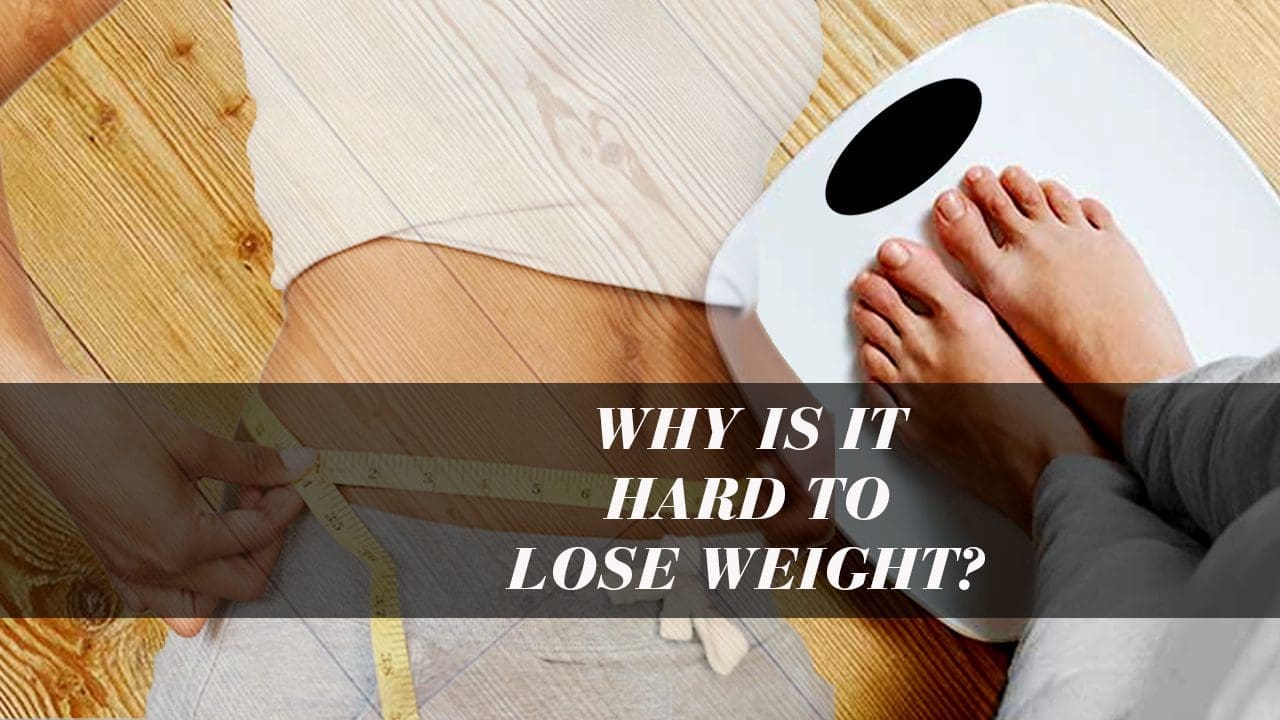Table of Contents
Do you feel:
- Unexplained weight gain?
- Excessive belching, burping, or bloating?
- Hungry an hour or two after eating?
- Hormone imbalances?
- Poor bowel function?
If you are experiencing any of these situations, then you might have experienced some trouble losing weight.
Trying to lose weight is harder than it looks. While the secret of losing weight is more accessible said than done, people are always trying to live healthier lives by exercising and eating right. Some people can maintain a healthy weight throughout their lives effortlessly; however, for others, it is a struggle that starts from when they were a kid, and it gets harder when they start growing up. There have been books on how to lose weight, and people gaining weight when they are middle-aged, it is shown around their mid-section of their bodies. Although when a person is trying to lose weight due to health reasons or wanting to get better, it can be a long, arduous journey.
There are many reasons why individuals are having trouble losing weight. It might be due to being older and that the body changes along with getting older as well. Here are some of the reasons why it is difficult to lose weight, the older a person gets.
Losing Muscle Mass
When a person age, their metabolism changes with them. When they are younger, their metabolism can make a person exercise with high intensity. As they get older, their metabolism changes, and they will slow down a bit when they are exercising. Not only that, but a person can lose their muscle mass when they reach the age of 30.
Studies have shown that the amount of lean muscle mass can naturally decline 3 to 8 percent per decade when a person hits 30, and it will be much harder when they are at the age of 60. This is due to sarcopenia. Sarcopenia is a condition that is characterized by losing skeletal muscle mass and functioning. This condition is progressive, and some of the risk factors include age, gender, and the level of physical activity a person is doing. Since the strength and muscle mass decline in older adults mostly, it can lead to acute and chronic diseases that can harm the body.

There is a way to combat muscle loss for anyone that wants to have lean muscles and to lose weight, is to add weight training to their exercise regime. Research shows that lifting weights is perfect for anyone to make sure that the body stays toned and muscular while also preventing a metabolic slowdown. Since male and females bodies are different, doing weight lifting will help the muscles look lean and toned for females, while for males, their muscles look more prominent and bulker, depending on the weights they are using and how many reps they are doing.
Getting Overly Stressed
As we get older, the more stress we can get. Stress is made up of the hormone cortisol, which is released into the body. It can also be in two categories, which are short term and long term. With short term stress, it is effortless to manage since a person can be worried about a project for school, getting a job interview, or worrying about the little things, the cortisol hormone is short term and can be easily managed.

When it is long-term stress, it can lead to chronic illnesses if it is in a person for far too long. The pressures of work, having too many obligations, or stressing out due to deadlines for projects are bad for a person to have since the cortisol levels are building up in the body. Even having a sedentary job can cause the body to develop stress and weight gain.
There are ways to reduce stress in the body like finding hobbies to enjoy, exercising, always help the body release the tension that is pent up, even having a self-care day can do many wonders to a person and their body. Trying to de-stress the body is excellent and beneficial to anyone because being stress-free is essential for losing weight.
Major Lifestyle Changes
When it comes to significant lifestyle changes, it can be any one of these changes that can cause a person to gain weight. It does not always happen from the inside, but it can happen to people when they enter their thirties. Some changes can include starting a family, trying to find time out of a hectic schedule, distractions, or homework. Whatever the reasons are, these lifestyle changes require much attention. When that happens, then the pounds start to creep in, causing weight gain.
Medical Condition

Sometimes when a person gains weight, it is due to a medical condition they might have, and it makes it harder for them to lose weight as well. These medical conditions include PCOS (polycystic ovarian syndrome), sleep apnea, and hypothyroidism. When these conditions affect the targeted body systems, it can cause many health problems to the body by causing it to dysfunction.
“There are many reasons why losing weight is hard for anyone. There is a wide variety of reasons like eating junk foods, not getting enough sleep, staying hydrated, or a hectic lifestyle. If we take the time to change one thing to maintain a healthy lifestyle, then the weight will slowly but surely go away.” -Dr. Alex Jimenez D.C., C.C.S.T. Insight
Conclusion
Losing weight is hard for anyone, and it can be easy for some while difficult for others. Since everyone has a different body structure, trying to lose weight is one of the more laborious tasks if an individual has problems trying to shed off the weight. By changing some of the habits that are causing the weight gain, it may be beneficial to not only the person but to their body. Some products can help the body’s metabolism and support the function of sugars and amino acids that help support even the gastrointestinal lining, the endocrine system, and help maintain the blood sugar levels.
The scope of our information is limited to chiropractic, musculoskeletal, and nervous health issues or functional medicine articles, topics, and discussions. We use functional health protocols to treat injuries or disorders of the musculoskeletal system. Our office has made a reasonable attempt to provide supportive citations and has identified the relevant research study or studies supporting our posts. We also make copies of supporting research studies available to the board and or the public upon request. To further discuss the subject matter above, please feel free to ask Dr. Alex Jimenez or contact us at 915-850-0900.
References:
Dray, Tammy. “Why Is It Harder to Lose Weight as You Get Older?” LIVESTRONG.COM, Leaf Group, 2019, www.livestrong.com/article/417064-why-is-it-harder-to-lose-weight-as-you-get-older/.
Gunnars, Kris. “20 Common Reasons Why You’re Not Losing Weight.” Healthline, 20 Aug. 2018, www.healthline.com/nutrition/20-reasons-you-are-not-losing-weight.
Lawler, Moira. “5 Reasons It’s Harder to Lose Weight With Age.” EverydayHealth.com, 27 June, 2019, www.everydayhealth.com/weight/weight-gain-and-aging.aspx.
Santilli, Valter, et al. “Clinical Definition of Sarcopenia.” Clinical Cases in Mineral and Bone Metabolism: the Official Journal of the Italian Society of Osteoporosis, Mineral Metabolism, and Skeletal Diseases, CIC Edizioni Internazionali, Sept. 2014, www.ncbi.nlm.nih.gov/pmc/articles/PMC4269139/.
Walston, Jeremy D. “Sarcopenia in Older Adults.” Current Opinion in Rheumatology, U.S. National Library of Medicine, Nov. 2012, www.ncbi.nlm.nih.gov/pmc/articles/PMC4066461/.
Post Disclaimer
Professional Scope of Practice *
The information on this blog site is not intended to replace a one-on-one relationship with a qualified healthcare professional or licensed physician and is not medical advice. We encourage you to make healthcare decisions based on your research and partnership with a qualified healthcare professional.
Blog Information & Scope Discussions
Welcome to El Paso's Premier Wellness and Injury Care Clinic & Wellness Blog, where Dr. Alex Jimenez, DC, FNP-C, a board-certified Family Practice Nurse Practitioner (FNP-BC) and Chiropractor (DC), presents insights on how our team is dedicated to holistic healing and personalized care. Our practice aligns with evidence-based treatment protocols inspired by integrative medicine principles, similar to those found on this site and our family practice-based chiromed.com site, focusing on restoring health naturally for patients of all ages.
Our areas of chiropractic practice include Wellness & Nutrition, Chronic Pain, Personal Injury, Auto Accident Care, Work Injuries, Back Injury, Low Back Pain, Neck Pain, Migraine Headaches, Sports Injuries, Severe Sciatica, Scoliosis, Complex Herniated Discs, Fibromyalgia, Chronic Pain, Complex Injuries, Stress Management, Functional Medicine Treatments, and in-scope care protocols.
Our information scope is limited to chiropractic, musculoskeletal, physical medicine, wellness, contributing etiological viscerosomatic disturbances within clinical presentations, associated somato-visceral reflex clinical dynamics, subluxation complexes, sensitive health issues, and functional medicine articles, topics, and discussions.
We provide and present clinical collaboration with specialists from various disciplines. Each specialist is governed by their professional scope of practice and their jurisdiction of licensure. We use functional health & wellness protocols to treat and support care for the injuries or disorders of the musculoskeletal system.
Our videos, posts, topics, subjects, and insights cover clinical matters and issues that relate to and directly or indirectly support our clinical scope of practice.*
Our office has made a reasonable effort to provide supportive citations and has identified relevant research studies that support our posts. We provide copies of supporting research studies available to regulatory boards and the public upon request.
We understand that we cover matters that require an additional explanation of how they may assist in a particular care plan or treatment protocol; therefore, to discuss the subject matter above further, please feel free to ask Dr. Alex Jimenez, DC, APRN, FNP-BC, or contact us at 915-850-0900.
We are here to help you and your family.
Blessings
Dr. Alex Jimenez DC, MSACP, APRN, FNP-BC*, CCST, IFMCP, CFMP, ATN
email: coach@elpasofunctionalmedicine.com
Licensed as a Doctor of Chiropractic (DC) in Texas & New Mexico*
Texas DC License # TX5807
New Mexico DC License # NM-DC2182
Licensed as a Registered Nurse (RN*) in Texas & Multistate
Texas RN License # 1191402
ANCC FNP-BC: Board Certified Nurse Practitioner*
Compact Status: Multi-State License: Authorized to Practice in 40 States*
Graduate with Honors: ICHS: MSN-FNP (Family Nurse Practitioner Program)
Degree Granted. Master's in Family Practice MSN Diploma (Cum Laude)
Dr. Alex Jimenez, DC, APRN, FNP-BC*, CFMP, IFMCP, ATN, CCST
My Digital Business Card



